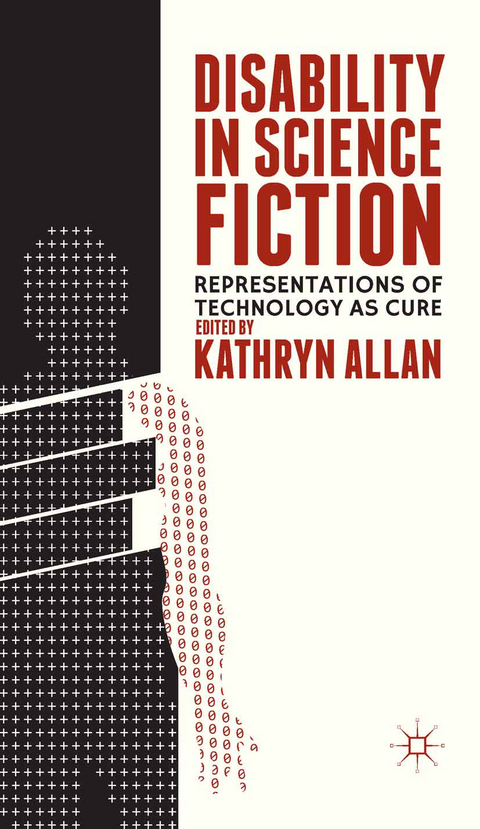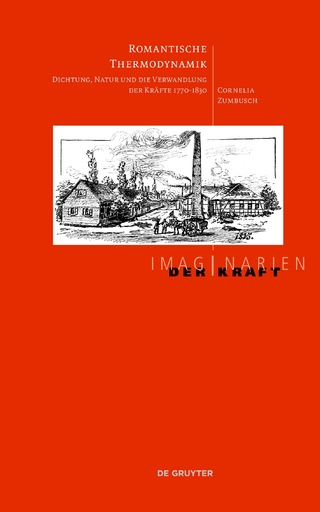
Disability in Science Fiction
Palgrave Macmillan (Verlag)
978-1-349-46568-2 (ISBN)
Kathryn Allan, Independent Scholar Donna Binns, Eastern Illinois University, USA. Robert W. Cape, Jr., Austin College, USA. Gerry Canavan, Marquette University, USA. António Fernando Cascais, New University of Lisbon, Portugal Ria Cheyne, Liverpool Hope University, UK. Brent Walter Cline, Spring Arbor University, USA. Ralph Covino, University of Tennessee at Chattanooga, USA. Hioni Karamanos, Independent Scholar Netty Matar, National University of Singapore, Singapore. Leigha McReynolds, The George Washington University, USA. Howard Sklar, University of Helsinki, Finland. Christy Tidwell, South Dakota School of Mines and Technology, USA. Joanne Woiak, University of Washington, USA.
Introduction: Reading Disability in Science Fiction; Kathryn Allan PART I: THEORIZING DISABILITY IN SCIENCE FICTION 1. Tools to Help You Think: Intersections between Disability Studies and the Writings of Samuel R. Delany; Joanne Woiak and Hioni Karamanos 2. The Metamorphic Body in Science Fiction: From Prosthetic Correction to Utopian Enhancement; António Fernando Cascais 3. Freaks and Extraordinary Bodies: Disability as Generic Marker in John Varley's "Tango Charlie and Foxtrot Romeo;" Ria Cheyne 4. The Many Voices of Charlie Gordon: On the Representation of Intellectual Disability in Daniel Keyes's Flowers for Algernon ; Howard Sklar PART II: HUMAN BOUNDARIES AND PROSTHETIC BODIES 5. Prosthetic Bodies: The Convergence of Disability, Technology and Capital in Peter Watts' Blindsight and Ian McDonald's River of Gods ; Netty Matar 6. The Bionic Woman : Machine or Human?; Donna Binns 7. Star Wars , Limb-loss, and What it Means to be Human; Ralph Covino 8. Animal and Alien Bodies as Prostheses: Reframing Disability in Avatar and How to Train Your Dragon ; Leigha McReynolds PART III: CURE NARRATIVES FOR THE (POST)HUMAN FUTURE 9. "Great Clumsy Dinosaurs": The Disabled Body in the Posthuman World; Brent Walter Cline 10. Disabled Hero, Sick Society: Sophocles' Philoctetes and Robert Silverberg's The Man in the Maze ; Robert W. Cape, Jr. 11. "Everything is always changing": Autism, Normalcy, and Progress in Elizabeth Moon's The Speed of Dark and Nancy Fulda's "Movement;" Christy Tidwell 12. Life without Hope? Huntington's Disease and Genetic Futurity; Gerry Canavan
| Erscheinungsdatum | 07.08.2019 |
|---|---|
| Zusatzinfo | VII, 217 p. |
| Verlagsort | Basingstoke |
| Sprache | englisch |
| Maße | 140 x 216 mm |
| Themenwelt | Literatur |
| Geisteswissenschaften ► Sprach- / Literaturwissenschaft ► Anglistik / Amerikanistik | |
| Geisteswissenschaften ► Sprach- / Literaturwissenschaft ► Literaturwissenschaft | |
| Schlagworte | Body • Corpus • English • English literature • Fiction • Future • History • History of Literature • Literature • Science • Science Fiction • Sophocles • Utopia • World literature • Writing |
| ISBN-10 | 1-349-46568-2 / 1349465682 |
| ISBN-13 | 978-1-349-46568-2 / 9781349465682 |
| Zustand | Neuware |
| Haben Sie eine Frage zum Produkt? |
aus dem Bereich


